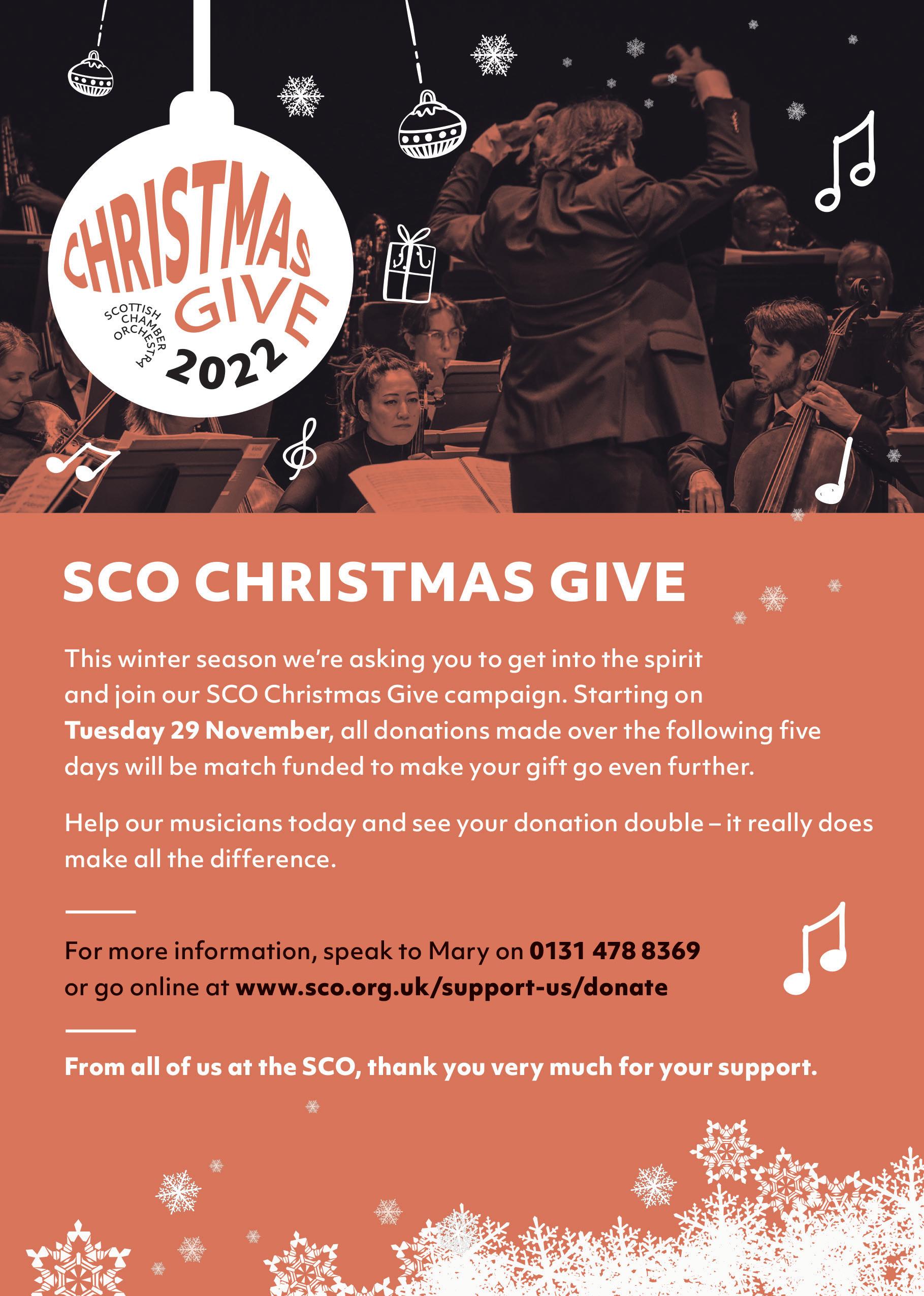ISRAEL IN EGYPT
1 – 2 Dec 2022





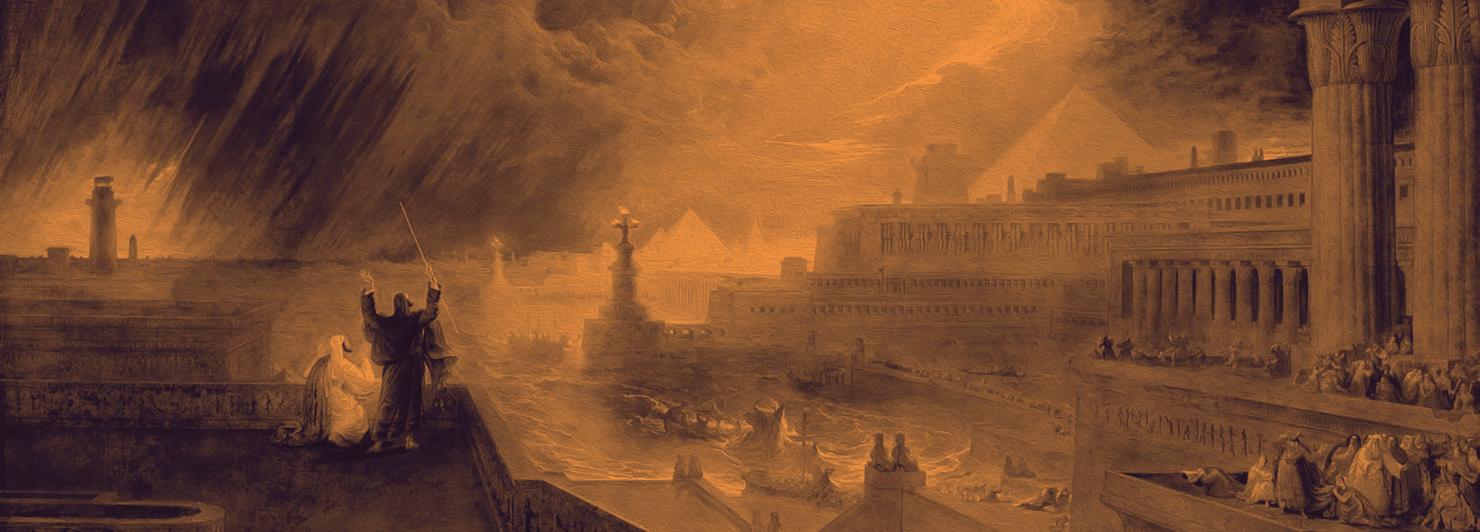
Thursday 1 December, 7.30pm Usher Hall, Edinburgh
Friday 2 December, 7.30pm City Halls, Glasgow
Handel Israel in Egypt
Part 2
Interval of 20 minutes
Part 3
Richard Egarr Conductor / Harpsichord
Rowan Pierce Soprano
Mary Bevan Soprano
Helen Charlston Alto
James Gilchrist Tenor
Ashley Riches Bass Baritone
Peter Harvey Baritone SCO Chorus
Gregory Batsleer Chorus Director
4 Royal Terrace, Edinburgh EH7 5AB +44 (0)131 557 6800 | info@sco.org.uk | sco.org.uk
The Scottish Chamber Orchestra is a charity registered in Scotland No. SC015039. Company registration No. SC075079.

The SCO is extremely grateful to the Scottish Government and to the City of Edinburgh Council for their continued support. We are also indebted to our Business Partners, all of the charitable trusts, foundations and lottery funders who support our projects, and to the very many individuals who are kind enough to give us financial support and who enable us to do so much. Each and every donation makes a difference and we truly appreciate it.
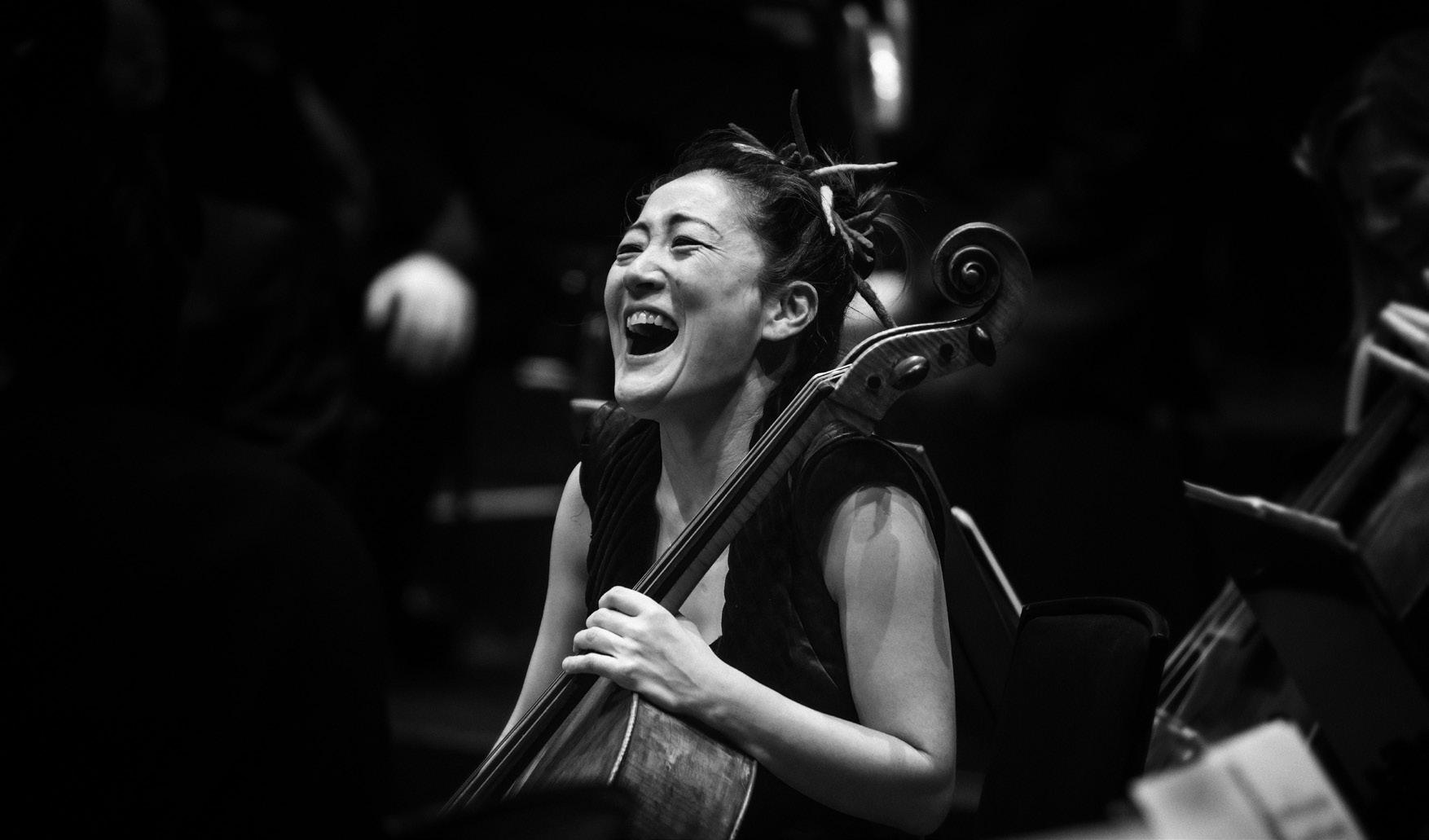

 Delivered by
Delivered by
Lucinda and Hew Bruce-Gardyne Malcolm and Avril Gourlay
James and Felicity Ivory
Christine Lessels
Clair and Vincent Ryan Alan and Sue Warner
Eric G Anderson
David Caldwell in memory of Ann Tom and Alison Cunningham
John and Jane Griffiths
Judith and David Halkerston
J Douglas Home Audrey Hopkins
David and Elizabeth Hudson Dr and Mrs Peter Jackson Dr Daniel Lamont Chris and Gill Masters Duncan and Una McGhie Anne-Marie McQueen James F Muirhead
Patrick and Susan Prenter
Mr and Mrs J Reid
Martin and Mairi Ritchie
Elaine Ross
Hilary E Ross
George Rubienski
Jill and Brian Sandford
Michael and Elizabeth Sudlow
Robert and Elizabeth Turcan
Tom and Natalie Usher
Anny and Bobby White Finlay and Lynn Williamson
Ruth Woodburn
Lord Matthew Clarke James and Caroline Denison-Pender Andrew and Kirsty Desson David and Sheila Ferrier Chris and Claire Fletcher James Friend
Iain Gow Ian Hutton
David Kerr
Gordon Kirk
Robert Mackay and Philip Whitley Mike and Karen Mair Anne McAlister and Philip Sawyer Gavin McEwan Roy and Svend McEwan-Brown Alan Moat
John and Liz Murphy Alison and Stephen Rawles Andrew Robinson Ian S Swanson
John-Paul and Joanna Temperley Anne Usher
Catherine Wilson Neil and Philippa Woodcock G M Wright
Bruce and Lynda Wyer
Roy Alexander
Joseph I Anderson
Pamela Andrews and Alan Norton
Dr Peter Armit
William Armstrong Fiona and Neil Ballantyne
Timothy Barnes and Janet Sidaway
The Batsleer Family
Jack Bogle
Jane Borland
Michael and Jane Boyle Mary Brady
Elizabeth Brittin
John Brownlie
Laura Buist
Robert Burns
Sheila Colvin
Lorn and Camilla Cowie
Lord and Lady Cullen of Whitekirk Adam and Lesley Cumming Jo and Christine Danbolt
Dr Wilma Dickson
James Dunbar-Nasmith Dr and Mrs Alan Falconer Sheila Ferguson
Dr James W E Forrester Dr William Fortescue
Jeanette Gilchrist
David Gilmour
Dr David Grant Margaret Green Andrew Hadden
J Martin Haldane Ronnie and Ann Hanna Ruth Hannah Robin Harding Roderick Hart Norman Hazelton Ron and Evelynne Hill Clephane Hume Tim and Anna Ingold David and Pamela Jenkins Catherine Johnstone Julie and Julian Keanie Marty Kehoe Professor Christopher and Mrs Alison Kelnar Dr and Mrs Ian Laing Janey and Barrie Lambie Graham and Elma Leisk Geoff Lewis Dorothy A Lunt Vincent Macaulay Joan MacDonald Isobel and Alan MacGillivary Jo-Anna Marshall
James McClure in memory of Robert Duncan Gavin McCrone Michael McGarvie Brian Miller James and Helen Moir Alistair Montgomerie Margaret Mortimer and Ken Jobling Andrew Murchison Hugh and Gillian Nimmo David and Tanya Parker Hilary and Bruce Patrick Maggie Peatfield John Peutherer in memory of Audrey Peutherer
James S Potter Alastair Reid Fiona Reith Olivia Robinson Catherine Steel Ian Szymanski Michael and Jane Boyle Douglas and Sandra Tweddle Margaretha Walker James Wastle C S Weir Bill Welsh Roderick Wylie
We believe the thrill of live orchestral music should be accessible to everyone, so we aim to keep the price of concert tickets as fair as possible. However, even if a performance were completely sold out, we would not cover the presentation costs.
We are indebted to everyone acknowledged here who gives philanthropic gifts to the SCO of £300 or greater each year, as well as those who prefer to remain anonymous. We are also incredibly thankful to the many individuals not listed who are kind enough to support the Orchestra financially, whether that is regularly or on an ad hoc basis. Every single donation makes a difference and we are truly grateful.
Become a regular donor, from as little as £5 a month, by contacting Mary Clayton on 0131 478 8369 or mary.clayton@sco.org.uk
Our Principal Conductor’s Circle is made up of individuals who share the SCO’s vision to bring the joy of music to as many people as possible. These individuals are a special part of our musical family, and their commitment and generosity benefit us all – musicians, audiences and creative learning participants alike. We would like to extend our grateful thanks to them for playing such a key part in the future of the SCO.
American Development Fund
Erik Lars Hansen and Vanessa C L Chang Kenneth and Martha Barker
Creative Learning Fund David and Maria Cumming
Annual Fund James and Patricia Cook Dr Caroline N Hahn Hedley G Wright
Conductor Emeritus Joseph Swensen
Donald and Louise MacDonald
Chorus Director Gregory Batsleer Anne McFarlane
Viola Steve King Sir Ewan and Lady Brown
Principal Cello Philip Higham The Thomas Family
Cello Donald Gillan
Professor Sue Lightman Cello Eric de Wit Jasmine Macquaker Charitable Fund
Visiting Artists Fund
Colin and Sue Buchan Anne and Matthew Richards Productions Fund The Usher Family
International Touring Fund Gavin and Kate Gemmell
Principal Second Violin Marcus Barcham Stevens Jo and Alison Elliot
Principal Flute André Cebrián Claire and Mark Urquhart
Principal Oboe Robin Williams Hedley G Wright
Principal Clarinet Maximiliano Martín Stuart and Alison Paul
Principal Bassoon Cerys Ambrose-Evans Claire and Anthony Tait
Principal Timpani Louise Lewis Goodwin Geoff and Mary Ball
Stephanie Gonley
Kana Kawashima
Emily Dellit
Fiona Alexander
Amira Bedrush-McDonald
Sarah Bevan-Baker
Benjamin Shute
Christiane Eidsten Dahl
Marcus Barcham Stevens
Gordon Bragg
Rachel Spencer
Rachel Smith
Niamh Lyons
Kristin Deeken
Viola
Fiona Winning
Brian Schiele
Steve King
Rebecca Wexler
Cello
Philip Higham
Su-a Lee
Donald Gillan
Robert Anderson Bass
Roberto Carillo-Garcia
Adrian Bornet
Information correct at the time of going to print
Julian Scott Bassoon
Cerys Ambrose-Evans
Alison Green
Peter Franks Simon Bird
Marcus Barcham Stevens
Principal Second Violin

Handel (1685-1759)
Israel in Egypt (1739)
Part 2 Part 3
Too many choruses, and far from enough showy arias. Just too serious for its own good. Why couldn’t it be more… well, operatic?
That, in essence, was the rather withering verdict on Handel’s Israel in Egypt from listeners at its premiere, on 4 April 1739, in the King’s Theatre on London’s Haymarket. It only survived two performances before Handel withdrew the piece and made some substantial reconfigurations – but we’ll come to those later. What’s important for now is that the Handel oratorio that today comes a close second to Messiah in terms of popularity really didn’t please its audiences in its composer’s day.
There’s probably a good reason for that, and it’s probably got a lot to do with changing London tastes. Handel had first visited the English capital in 1711, where he scored an immediate hit with his Italianlanguage opera Rinaldo, so much so that he quickly became wildly successful with similar Italian operas written specifically to inspire and entertain his London audiences, and settled permanently in the city as early as 1712.
Though it was once hugely popular with aristocratic audiences, however, over the following couple of decades Italian opera began to look like it was outstaying its welcome. London was a prosperous city with an increasingly affluent middle class, who were keen to sample what their more moneyed fellow citizens had long enjoyed. Italian opera, however, they found rather impenetrable with its convoluted, far-fetched storylines and indecipherable language. With tensions simmering between Britain and the continent, many
felt it their patriotic duty to support English-language works – and in 1728, John Gay’s The Beggar’s Opera showed what could be done in the vernacular with a few popular tunes. Four years later, the Bishop of London, Edmund Gibson, went as far as banning theatrical stagings of Biblical tales.
All of those factors played into Handel’s shift from lavishly staged operas in Italian to unstaged, religious-themed oratorios in English. Luckily, he’d already discovered that, despite the works’ comparative simplicity, English audiences still loved oratorios that related Biblical stories they were far more familiar with. And though it’s not correct to say he invented the oratorio (the form had been around since the Renaissance in Italy), he most certainly established the English-language oratorio tradition – which has continued into the
20th century and beyond. (It no doubt helped, too, that since they dispensed with staging, costumes and props, oratorios were far cheaper to put on – and therefore far more profitable.)
Handel’s initial attempt was with Esther, first created in 1718 as a masque, then transformed into a concert oratorio in 1732 following the Bishop of London’s ruling. Its success in that later form spurred Handel on to produce more of the same. And when, six years later, it came to creating Israel in Egypt – his retelling of the Israelites’ escape from slavery in Egypt, and their first cautious steps towards the promised land, using texts selected from the Old Testament – Handel displayed the astonishing speed that came to characterise his composing. He began the oratorio on 1 October 1738, completing a first draft of Part 3 on 11 October, and
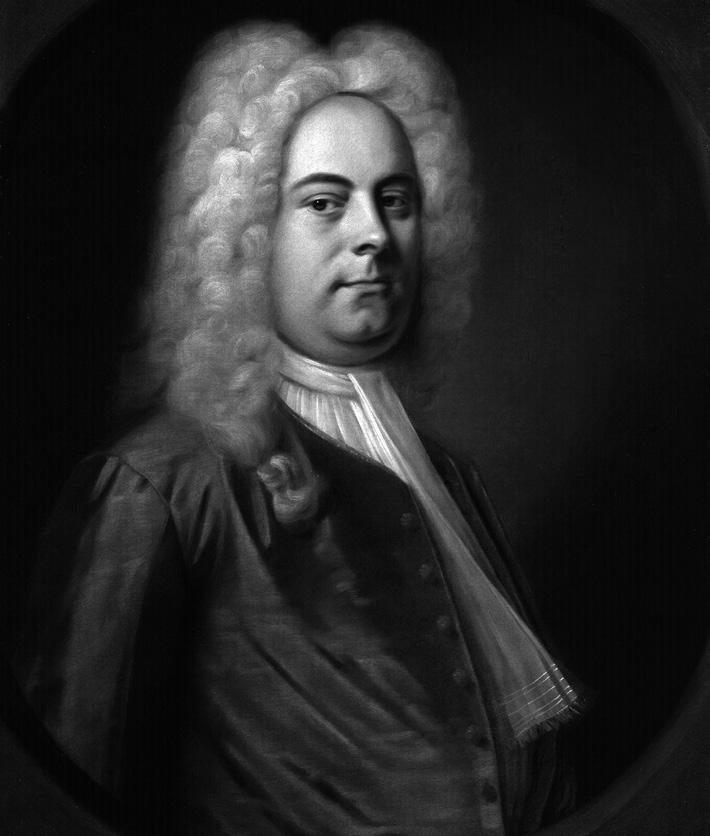
All of those factors played into Handel’s shift from lavishly staged operas in Italian to unstaged, religiousthemed oratorios in English.George Frideric Handel
of Part 2 on 20 October, then essentially finishing work on both by 1 November.
Handel’s work was perhaps made speedier, however, by his shameless pilfering of music from both his own works (including some keyboard music, as well as his Dixit Dominus and Chandos Anthems), and from music by other composers, including Stradella, Erba and Giovanni Gabrieli. It might be looked down upon today, but this was fairly standard practice in Handel’s time – and what’s especially remarkable is how apt and right the repurposed music feels in its new contexts. If you didn’t know, you could probably never tell.
Talking of pilfering, Handel’s original Part 1 of Israel in Egypt was another piece of brazen self-theft, a reworking of his 40-minute Funeral Anthem for Queen Caroline (‘The Ways of Zion do
Mourn’), written about a year earlier, here reincarnated as ‘The Lamentation of the Israelites for the Death of Joseph’. It was another element of the original oratorio that didn’t prove popular, however, and it didn’t survive much longer than Israel in Egypt’s first performances (though it’s been resurrected and reincorporated in several recent performances and recordings). It’s that removal that has given rise to the slightly awkward situation whereby modern performances of Israel in Egypt have a Part 2 and a Part 3, but no Part 1.
And though the oratorio’s early audiences didn’t much care for Handel’s 40-minute opener, what they really objected to was his stubborn focus on the chorus, to the extent that his vocal soloists barely had anything to do – they certainly didn’t sing any particular narrative roles,

as
But Israel in Egypt’s popularity can’t just be put down to how well it connected with Victorian choral societies. Without its sheer exuberance of creation, its vivid and very varied choral writing, and its simple but powerful storyline, it would never have endured.Haymarket, where Israel in Egypt was first performed.
they’d done in earlier oratorios. Where, frankly, were all the arias? In his extensive reconfigurations, Handel obliged by adding a few, but don’t forget: Israel in Egypt tells the story of a people, not of individuals. It’s not the small-scale actions of particular characters that propel its storyline, as they had done in Handel’s successful Esther, Deborah, Athalia and Saul. Instead, it’s the broader sweep of history and theology that drives Israel in Egypt’s narrative, as God unleashes his plagues on the Pharaoh’s lands, liberating the Israelites so that they can pursue their destiny.
Even chopping Part 1 and adding a clutch of arias didn’t much endear Israel in Egypt to audiences in Handel’s time, however. Jump forward half a century, though, and it was that oratorio – heard during Handel centenary celebrations in London’s Westminster Abbey – that inspired Joseph Haydn to attempt something similarly grand in his own The Creation (on hearing Handel’s oratorio, Haydn is reputed to have exclaimed: ‘He is the master of us all!’). And with the growing popularity of local amateur choral societies the following century, Israel in Egypt fitted their musical tastes and resources like a glove. So popular did it become in Victorian times, in fact, that a performance at London’s Crystal Palace in June 1888 was reported to have involved a chorus of around 4,000 (and was even captured on one of the earliest surviving recordings).
But Israel in Egypt’s popularity can’t just be put down to how well it connected with Victorian choral societies. Without its sheer exuberance of creation, its vivid and very varied choral writing, and its simple but powerful storyline, it would never have endured. Indeed, removing Part 1 also
created a compelling, two-part form for the piece: sit up and listen to the vivid musical storytelling of the plagues and the parting of the Red Sea before the interval, but afterwards, sit back and marvel at Handel’s exuberant celebration of the power and mercy of his Creator.
Part 2 throws us straight into the narrative of the Israelites suffering under a recently crowned Pharaoh with the tenor’s opening recitative (‘Now there arose a new king’), further illustrated in the alternately lamenting and angry chorus that follows. God acts quickly after that, however, first choosing Moses and Aaron as the Israelites’ leaders (‘Then sent He Moses’) before visiting his relentless succession of plagues on the Egyptians.
First, sinister, angular lines and dissonances leave us in no doubt as to the Egyptians’ revulsion and fury as the water of the River Nile is transformed into blood (‘They loathed to drink of the river’). Jagged rhythms imitate the furious hopping of the ensuing plague of frogs in a sprightly (and rather gleeful) alto aria (‘Their land brought forth frogs’), and buzzing, scurrying strings accompany the subsequent plague of flies and lice (‘He spake the word’). The following chorus (‘He gave them hailstones for rain’) might begin with a gentle pitter-patter of precipitation, but it quickly develops into a deluge with pounding timpani and swirling winds.
The mood changes entirely, however, as God plunges Egypt into gloom (‘He sent a thick darkness over all the land’), with ominous repeated notes and relentlessly shifting harmonies adding to a general sense of unease and fear, the chorus’s voices seeming to sing distantly to each
other across the obscurity. Things get worse still as God massacres Egyptian infants (‘He smote all the first born of Egypt’), and you can almost feel the stabbing, fatal blows in Handel’s violent, jabbing music.
The volte-face of emotion as God gazes lovingly on his own people as a shepherd guards his flock (‘But as for His people’), complete with folk-like drones in the lower instruments, comes as quite a shock, and we glance back at the stunned Egyptians in the next chorus (‘Egypt was glad when they departed’) with a mixture of calm and unease.
A loud, declamatory phrase depicts Moses commanding the Red Sea to part (‘He rebuked the Red Sea’), followed immediately by a hushed, awe-struck answer as the waters actually obey his order. Moses guides his people through the Sea in the grand, confident ‘He led them through the deep as through a wildness’, though the waters return to drown the pursuing Egyptians in the stormy, surging ‘But the waters overwhelmed their enemies’. After all the horrors, the killings and the dash for escape, it’s perhaps no surprise that Part 2 comes to a calm, reverential close with a mix of wonder and fear at God’s might in ‘And Israel saw that great work’.
In Part 3, Handel dispenses with storytelling, reflecting instead on the eradefining events that have just occurred, and on God’s overwhelming power. He begins in jubilation with the mighty chorus ‘Moses and the children of Israel’ (which has more than a whiff of ‘Zadok the Priest’), before the lyrical soprano duet ‘The Lord is my strength’ considers the Israelites’ relationship with God.
The solemn choral recitative ‘He is my God’ moves into the serious, slow-moving fugue of ‘And I will exalt him’, before two basses consider God’s power to destroy his enemies in ‘The Lord is a Man of war’. Memories of the destruction of the Egyptian army continue in the choral ‘The depths have covered them’, leading to the intense choral recitative ‘And in the greatness of Thine excellency’, haunted by fear of God’s might. ‘And with the blast of thy nostrils’ remembers the waters returning to drown the Egyptians with some vivid musical picture-painting, and the oratorio’s sole tenor aria, ‘The enemy said, I will pursue’, conveys terrible irony in its confident, lilting dance theme depicting the Egyptians’ pride at their decision to pursue the Israelites.
The soprano reminds the tenor what became of the Egyptians in the more measured ‘Thou didst blow with the wind’, while the lyrical, somewhat poignant ‘Thou in Thy Mercy’ is a duet for alto and tenor that turns to a consideration of God’s forgiveness. In the chorus ‘The people shall hear’, the focus returns to God’s might, and the Israelites’ fear of it, though they finally reach the promised land in the gently flowing, pastoral alto aria ‘Thou shalt bring them in’ that follows. Israel in Egypt’s closing sections – including two tenor recitatives – celebrate the everlasting reign of God, introducing us to the prophetess Miriam, sister of Aaron, who as a soprano soloist exhorts us to sing praises to the Lord. The chorus dutifully obeys in returning to the exultant music of ‘I will sing unto the Lord’ from near the beginning of Part 3, bringing Israel in Egypt to an uplifting, exuberant conclusion.
© David KettleHandel (1685-1759) Israel in Egypt (1739)
An announcement is made that a new Pharaoh has come to the throne who does not look kindly on the Israelites. God chooses Moses to lead his people out of bondage. A series of plagues falls on Egypt: the rivers turn to blood; a plague of frogs affects the land; lice crawl on man and beast; wild animals destroy everything; the Egyptian livestock get sick and die; blotches and blisters break out on the skin of man and beast; hailstorms blight the country; locusts appear and destroy all the crops; palpable darkness descends; and, finally, the eldest born sons of all the Egyptians are struck down dead. The ruler of Egypt agrees to let the Israelites depart, but changes his mind and pursues them. The Red Sea miraculously parts to let the Israelites cross in safety, but when the pursuing Egyptians try to cross, the waters engulf them and they are drowned.
The Israelites celebrate their deliverance. A series of joyful choruses are included in the third part, with the piece concluding with a soprano solo and chorus proclaiming that 'the Lord shall reign for ever and ever' and 'the horse and his rider hath He thrown into the sea'.
Handel (1685-1759) Israel in Egypt (1739)
Now there arose a new king over Egypt, which knew not Joseph; and he set over Israel taskmasters to afflict them with burdens; and they made them serve with rigour. Exodus 1:8, 11, 13
And the children of Israel sighed by reason of the bondage; and their cry came up unto God. They oppressed them with burdens and made them serve with rigour. Exodus 2:23, 1:11, 13
Then sent He Moses, his servant, and Aaron, whom He had chosen; these showed His signs among them, and wonders in the land of Ham. He turned their waters into blood. Psalms 105:26, 27, 29
They loathed to drink of the river. He turned their waters into blood. Exodus 7:18; Psalms 105:29
Their land brought forth frogs, yea, even in their king's chambers. He gave their cattle over to the pestilence; blotches and blains broke forth on man and beast. Psalms 105:30, 78:48; Exodus 9:9
He spake the word; and there came all manner of flies, and lice in all their quarters, and the locusts came without number and devoured the fruits of the ground. Psalms 105:31, 34, 15
He gave them hailstones for rain; fire, mingled with the hail, ran along upon the ground. Psalms 105:32, Exodus 9:23, 24
Chorus
He sent a thick darkness over all the land, even darkness which might be felt. Exodus 10:21
He smote all the first-born of Egypt, the chief of all their strength. Psalms 105:36
But as for His people, He led them forth like sheep; He brought them out with silver and gold: there was not one feeble person among their tribes. Psalms 78:52, 105:37
Egypt was glad when they departed, for the fear of them fell upon them. Psalms 105:38
He rebuked the Red Sea, and it was dried up. He led them through the deep as through a wilderness. But the waters overwhelmed their enemies; there was not one of them left. Psalms 106:9, 11
And Israel saw that great work that the Lord did upon the Egyptians, and the people feared the Lord. And believed the Lord and His servant Moses. Exodus 14:31
Egypt was glad when they departed, for the fear of them fell upon them. Psalms 105:38
Moses and the children of Israel sung this song unto the Lord, and spake, saying: I will sing unto the Lord for He hath triumphed gloriously; the horse and his rider hath He thrown into the sea.
Exodus 15:1
Duet (soprano I and II)
The Lord is my strength and my song; He is become my salvation.
Exodus 15:2
He is my God, and I will prepare Him an habitation; my father's God. And I will exalt him, he is my father’s God.
Exodus 15:2
Duet (bass I and II)
The Lord is a man of war; Lord is His name. Pharaoh's chariots and his host hath He cast into the sea. His chosen captains also are drowned in the Red Sea.
Exodus 15:3, 4
The depths have covered them; they sank into the bottom as a stone.
Exodus 15:5
Thy right hand, O Lord, is become glorious in power; thy right hand, O Lord, hath dashed in pieces the enemy.
Exodus 15:6
And in the greatness of thine excellency, thou has overthrown them that rose up against Thee. Thou sentest forth Thy wrath, which consumed them as stubble.
Exodus 15:7
And with the blast of Thy nostrils, the waters were gathered together; the floods stooped upright as an heap, and the depths were congealed in the heart of the sea.
Exodus 15:8
The enemy said, I will pursue, I will overtake, I will divide the spoil; my lust shall be satisfied upon them. I will draw my sword; my hand shall destroy them.
Exodus 15:9
Thou didst blow with the wind, the sea covered them; they sank as lead in the mighty waters.
Exodus 15:10
Who is like unto Thee, O Lord, among the Gods? Who is like Thee, glorious in holiness, fearful in praises, doing wonders? Thou stretchest out Thy right hand. The earth swallowed them. Exodus 15:11, 12
Thou in Thy mercy has led forth Thy people which Thou hast redeemed. Thou has guided them in Thy strength unto Thy holy habitation.
Exodus 15:13
The people shall hear and be afraid; sorrow shall take hold on them. All the inhabitants of Canaan shall melt away by the greatness of Thy arm. They shall be as still as a stone till Thy people pass over, O Lord, which Thou has purchased. Exodus 15:14-16
Thou shalt bring them in, and plant them in the mountain of Thine inheritance, in the place, O Lord, which Thou hast made for Thee to dwell in, in the sanctuary which Thy hands have established.
Exodus 15:17
The Lord shall reign for ever and ever. Exodus 15:18
For the horse of Pharaoh went in with his chariots and with his horsemen into the sea, and the Lord brought again the waters of the sea upon them; but the children of Israel went on dry land in the midst of the sea.
Exodus 15:19
The Lord shall reign forever and ever. Exodus 15:18
And Miriam the prophetess, the sister of Aaron, took a timbrel in her hand, and all the women went out after her with timbrels and with dances. And Miriam answered them: Exodus 15:20-21
Sing ye to the Lord, for He hath triumphed gloriously. The Lord shall reign forever and ever. The horse and his rider hath He thrown into to the sea. Exodus 15:21, 18 END
ISRAEL IN EGYPT
1-2 Dec, 7.30pm Edinburgh | Glasgow
FELIX YANIEWICZ AND THE SCOTTISH ENLIGHTENMENT
Co-financed by the Minister of Culture and National Heritage of the Republic of Poland 7-9 Dec, 7.30pm Dumfries | Edinburgh | Glasgow
YEOL EUM SON PLAYS
MOZART 15-16 Dec, 7.30pm Edinburgh | Glasgow
SCO CHORUS CHRISTMAS
CONCERT: THE HEART OF NIGHT 20-21 Dec, 7.30pm Edinburgh
VIENNESE NEW YEAR
1,3,4 Jan, Various times Edinburgh | St Andrews | Ayr
MUSIQUE AMÉRIQUE
Kindly supported by SCO American Development Fund 12-13 Jan, 7.30pm Edinburgh | Glasgow
MÖDER DY / MOTHER WAVE
Part of Celtic Connections 2023 26-27 Jan, 7.30pm Edinburgh | Glasgow
MOZART’S FLUTE CONCERTO
15-17 Feb, 7.30pm St Andrews | Edinburgh | Glasgow
MAXIM CONDUCTS BRAHMS 23-24 Feb, 7.30pm Edinburgh | Glasgow
THE DREAM
Sponsored by Pulsant 2-4 Mar, 7.30pm Perth | Edinburgh | Glasgow
FOLK INSPIRATIONS WITH PEKKA
9-10 Mar, 7.30pm Edinburgh | Glasgow
LES ILLUMINATIONS
15-17 Mar, 7.30pm St Andrews | Edinburgh | Glasgow
HANDEL: MUSIC FOR THE ROYALS
SCHUBERT’S
UNFINISHED SYMPHONY
Kindly supported by Claire and Mark Urquhart 30 Mar-1 Apr, 7.30pm Edinburgh | Glasgow | Aberdeen
SUMMER NIGHTS
WITH KAREN CARGILL 19-21 Apr, 7.30pm St Andrews | Edinburgh | Glasgow
BEETHOVEN’S FIFTH 27-29 Apr, 7.30pm Edinburgh | Glasgow | Aberdeen
TCHAIKOVSKY’S FIFTH 4-5 May, 7.30pm Edinburgh | Glasgow
BRAHMS REQUIEM
11-12 May, 7.30pm Edinburgh | Glasgow
LELEUX
Our Edinburgh concert is sponsored by Institut Français Écosse 19-21 Jan, 7.30pm Edinburgh | Glasgow | Aberdeen
Our Edinburgh concert is kindly supported by The Usher Family 23-24 Mar, 7.30pm Edinburgh | Glasgow
4 Royal Terrace, Edinburgh EH7 5AB +44 (0)131 557 6800 sco.org.uk
The Scottish Chamber Orchestra is a charity registered in Scotland No. SC015039. Company registration No. SC075079.
Richard Egarr brings a joyful sense of adventure and a keen, enquiring mind to all his music-making - whether conducting, directing from the keyboard, giving recitals ,playing chamber-music, and indeed talking about music at every opportunity.
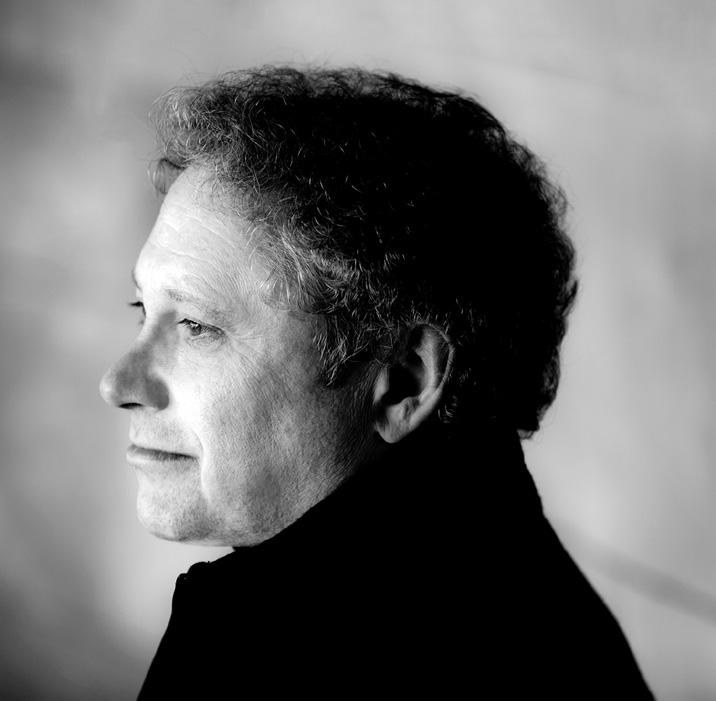
Egarr joined the Philharmonia Baroque Orchestra and Chorale as Music Director in August 2020, having been Music Director of the Academy of Ancient Music for 15years (up to 2021), succeeding their founding director Christopher Hogwood. He is also Principal Guest of the Residentie Orkest in The Hague and Artistic Partner of the St Paul Chamber and was Associate Artist with the Scottish Chamber 2011-2017.
Egarr straddles the worlds of historically-informed and modern symphonic performance and has conducted many leading symphony orchestras, notably the London Symphony, Royal Concertgebouw and Philadelphia orchestras. In his 22/23 Philharmonia Baroque season he focuses on opera and oratorio - particularly Handel - conducting Amadigi di Gaulla (directed by Louisa Muller), Acis and Galatea (semi-staged), and Theodora (concertante), also taking Israel in Egypt (concertante) to the Scottish Chamber. Next Summer he conducts the PBO in Monteverdi’s Poppea in a radical production by Yuval Sharon at the Spoleto Festival (USA). Other plans include Vaughan Williams 5 with Residentie Orkest, Haydn’s Creation at the Schleswig-Holstein Festival with the NDR Rundfunkorchester, and guest weeks with the Frankfurt Radio and Seattle symphonies.
Egarr trained as a choirboy at York Minster, at Chetham’s School of Music in Manchester, and as organ scholar at Clare College Cambridge. His studies with Gustav and Marie Leonhardt further inspired his work in the field of historical performance. He taught for many years at the Amsterdam Conservatoire and has been Visiting Professor at the Juilliard School for over 10 years.
For full biography please visit sco.org.uk
Yorkshire born soprano Rowan Pierce was awarded the President’s Award by HRH Prince of Wales at the Royal College of Music in 2017. She won both the Song Prize and First Prize at the inaugural Grange Festival International Singing Competition in 2017, the first Schubert Society Singer Prize in 2014 and the Van Someren Godfery Prize at the RCM. She was a Britten Pears young artist, a Rising Star of the Orchestra of the Age of Enlightenment and a Harewood Artist at English National Opera.
Rowan has appeared in concert throughout Europe and South America. She performs regularly with ensembles including the Academy of Ancient Music, Gabrieli Consort, Scottish Chamber Orchestra, BBC Scottish Symphony Orchestra, City of Birmingham Symphony Orchestra, Orchestra of the Age of Enlightenment and Royal Northern Sinfonia.
Rowan made her BBC Proms debut at the Royal Albert Hall in 2017 with the OAE and returned in 2019 for Handel Jephtha with the Scottish Chamber Orchestra. She made her Wigmore Hall debut with the London Handel Players and returned with Florilegium in the 2019/20 season.
On the opera stage Rowan has performed Drusilla in Monteverdi’s L’incoronazione di Poppea as a Britten Pears Young Artist, and roles as a Samling Artist included Susanna in Mozart’s The Marriage of Figaro, Miss Wordsworth in Britten’s Albert Herring and Princess in Ravel’s L’enfant et les sortilèges.
For full biography please visit sco.org.uk

Praised by Opera for her “dramatic wit and vocal control”, British soprano Mary Bevan is internationally renowned in baroque, classical and contemporary repertoire, and appears regularly with leading conductors, orchestras and ensembles around the world. She is a winner of the Royal Philharmonic Society’s Young Artist award and UK Critics’ Circle Award for Exceptional Young Talent in music and was awarded a MBE in the Queen’s birthday honours list in 2019.
Bevan’s engagements for the 2022/23 season include a return to the Royal Opera House, Covent Garden as Morgana in a new Richard Jones production of Alcina that will be conducted by Christian Curnyn, LIGHT: Bach Dances with the Hofesh Shechter Company at the Philharmonie de Paris, a return to the Garsington Opera and her debut at La Fenice, Venice as Eurydice in Gluck Orfeo and Eurydice.

Last season, Bevan’s many concert appearances included Haydn The Creation at the Barbican Hall with the Academy of Ancient Music, Belinda and First Witch Dido & Aeneas with the Early Opera Company at St John’s Smith Square, a European tour of Handel Messiah with the Kammerorchester Basel, Handel Theresienmesse with the Handel and Haydn Society and Bach Mass in B minor with the Philhamonia Baroque Orchestra. Further highlights include recitals at Wigmore Hall and the Lammermuir, Osafestivalen and Oxford Lieder festivals. During the 2020/21 season she returned to Royal Danish Opera for her role debut as Marzelline Fidelio and for the production LIGHT: Bach Dances with director John Fuljames and conductor Lars Ulrik Mortensen and made her debut at the Bolshoi Theatre in David Alden’s production of Ariodante as Dalinda; in concert she sang the world premiere of Sir James MacMillan Christmas Oratorio at the Amsterdam Concertgebouw and A.Bliss Rout with the London Philharmonic Orchestra.
For full biography please visit sco.org.uk
Recent concert highlights include debuts with the Royal Liverpool Philharmonic Orchestra (Handel Messiah/Stephen Layton), Royal Northern Sinfonia (Mendelssohn Lobgesang/Paul McCreesh) and at the Palau de la Musica in Barcelona (Bach Matthew Passion/Gabrieli Consort and Players); a worldwide tour of Handel Messiah with the Seattle Symphony, the Western Australian Symphony Orchestra and Adelaide Symphony Orchestra; performances as part of Barbican Sound Unbound 2019 and solo recitals at York Early Music Festival, London Handel Festival, Händel-festspiele Halle, Korčula Baroque Festival, Leicester International Music Festival and Fitzrovia Festival. Helen is a BBC New Generation Artist (2021-2023).
Helen won First Prize in the 2018 Handel Singing Competition, was a Rising Star of the Orchestra of the Age of Enlightenment for 2017-19 and is a 2018 City Music Foundation Artist. This season she will make debuts with Academy of Ancient Music, Cambridge Handel Opera Company, Queensland Symphony Orchestra, Slovenian Philharmonic Orchestra and the Concertgebouw Kammerorchestra, as well as joining Fretwork for a solo recital programme at Wigmore Hall and York Early Music Christmas Festival. She will premiere the role of Anna in the newly completed opera Blue Electric by Tom Smail and will continue her commissioning project of lute songs with duo partner Toby Carr.
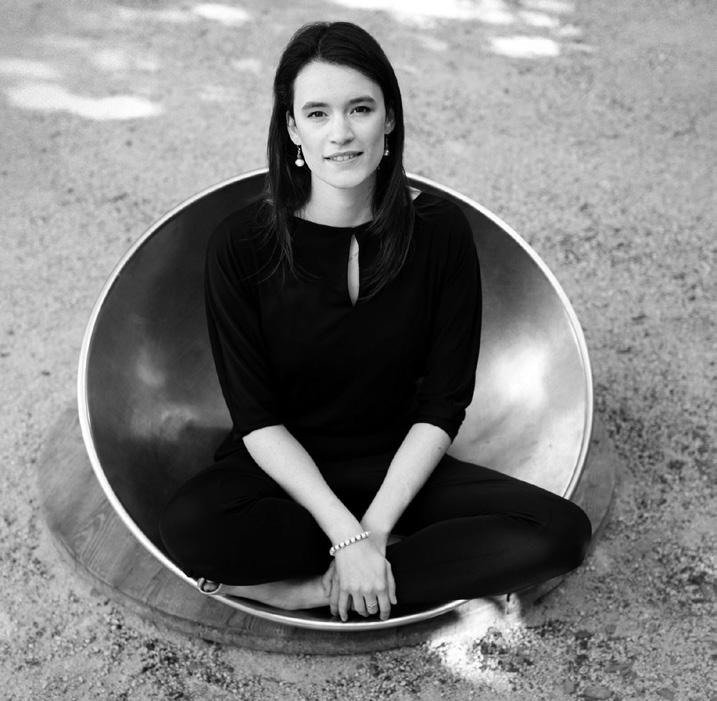
Helen began singing as chorister and head chorister of the St Albans Abbey Girls Choir. She then studied music at Trinity College, Cambridge where she held a choral scholarship for four years and was a scholar on the Pembroke College Lieder Scheme, led by Joseph Middleton.
For full biography please visit sco.org.uk
James Gilchrist began his working life as a doctor, turning to a full-time career in music in 1996. His musical interest was fired at a young age, singing first as a chorister in the choir of New College, Oxford, and later as a choral scholar at King’s College, Cambridge. James’ extensive concert repertoire has seen him perform in major concert halls throughout the world with conductors including Sir John Eliot Gardiner, Sir Roger Norrington, Bernard Labadie, Harry Christophers, Harry Bicket, Masaaki Suzuki and the late Richard Hickox.
A master of English music, he has performed Britten’s Church Parables in St Petersburg, in London and at the Aldeburgh Festival, Nocturne with the NHK Symphony in Tokyo and War Requiem with the San Francisco Symphony and the National Youth Orchestra of Germany. Equally at home in Baroque repertoire, appearances include Handel’s L’Allegro il Penseroso ed il Moderato with Stuttgart Bachakademie and at Teatro Real, Madrid, Solomon with Les Violons du Roy, Semele with Concerto Köln, Elijah with the Orquesta y Coro Nacionales de España, Madrid, Goteborgs Symfoniker and Bach Collegium Japan, all under the baton of Masaaki Suzuki, Hercules with the English Concert, Ode to St Cecilia with Basel Chamber Orchestra and Messiah with Boston Handel & Haydn Society and the City of Birmingham Symphony Orchestra. Bach’s Christmas Oratorio and the St John and St Matthew Passion feature prominently in his schedule, and he is celebrated as perhaps the finest Evangelist of his generation; as one review noted, ‘he hasn’t become a one-man Evangelist industry by chance’.
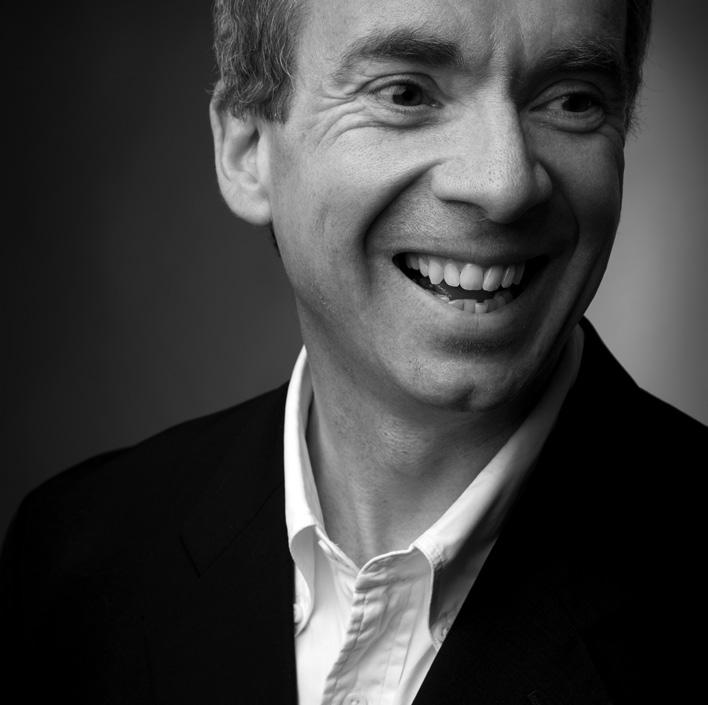
James’ impressive discography includes recordings of Albert Herring (title role) and Vaughan Williams’ A Poisoned Kiss, and more recently Songs of Travel for Chandos, St John Passion with the AAM, the Finzi song cycle Oh Fair To See, Elizabethan Lute Songs When Laura Smiles with Matthew Wadsworth, Leighton Earth Sweet Earth, Vaughan Williams On Wenlock Edge, Finzi songs and Britten’s Winter Words for Linn Records, the critically-acclaimed recordings of Schubert’s song cycles for Orchid Classics and a disc of Schumann song cycles for Linn Records.
For full biography please visit sco.org.uk
British baritone Peter Harvey has released more than 150 recordings in repertoire spanning eight centuries, with a focus on the High Baroque and the music of Bach and Handel.

He has recorded Handel’s Israel in Egypt with the Netherlands Chamber Choir and Le Concert Lorrain under Roy Goodman and with Arsys Bourgogne and Concerto Köln under Pierre Cao. He most recently performed the work at Konzerthaus Wien with Concerto Copenhagen.
As well as with renowned Early Music specialists such as Sir John Eliot Gardiner, Philippe Herreweghe, Christophe Rousset, Hervé Niquet, Ton Koopman, John Butt, Paul McCreesh and the late Gustav Leonhardt and Michel Corboz, Peter has also performed with the Boston Symphony Orchestra/Bernard Haitink, Orchestre symphonique de Montréal/Kent Nagano, Rotterdam Philharmonic/Lahav Shani, Symphonieorchester des Bayerischen Rundfunks and Oslo Philharmonic/both Herbert Blomstedt.
In addition to his interpretations of German and English Renaissance and Baroque repertoire, he has gained acclaim for his recordings of works of the French Baroque as well as later works, including his award-winning recordings of Haydn’s Creation and Fauré’s Requiem.
Currently collaborations also include Hans-Christoph Rademann/Internationale Bachakademie, Ruedi Lutz/J.S. Bachstiftung, Iván Fischer/Budapest Festival Orchestra, and Matthew Halls/Mozarteumsorchester Salzburg.
Peter last appeared with the SCO in 2016 (J.S. Bach: Magnificat, with Richard Egarr) and 2013 (J.S. Bach: Ich habe genug, with Masaaki Suzuki).
Bass-Baritone Ashley Riches studied at King’s College, Cambridge and the Guildhall School of Music and Drama and was later a Jette Parker Young Artist at The Royal Opera House and a BBC Radio 3 New Generation Artist.
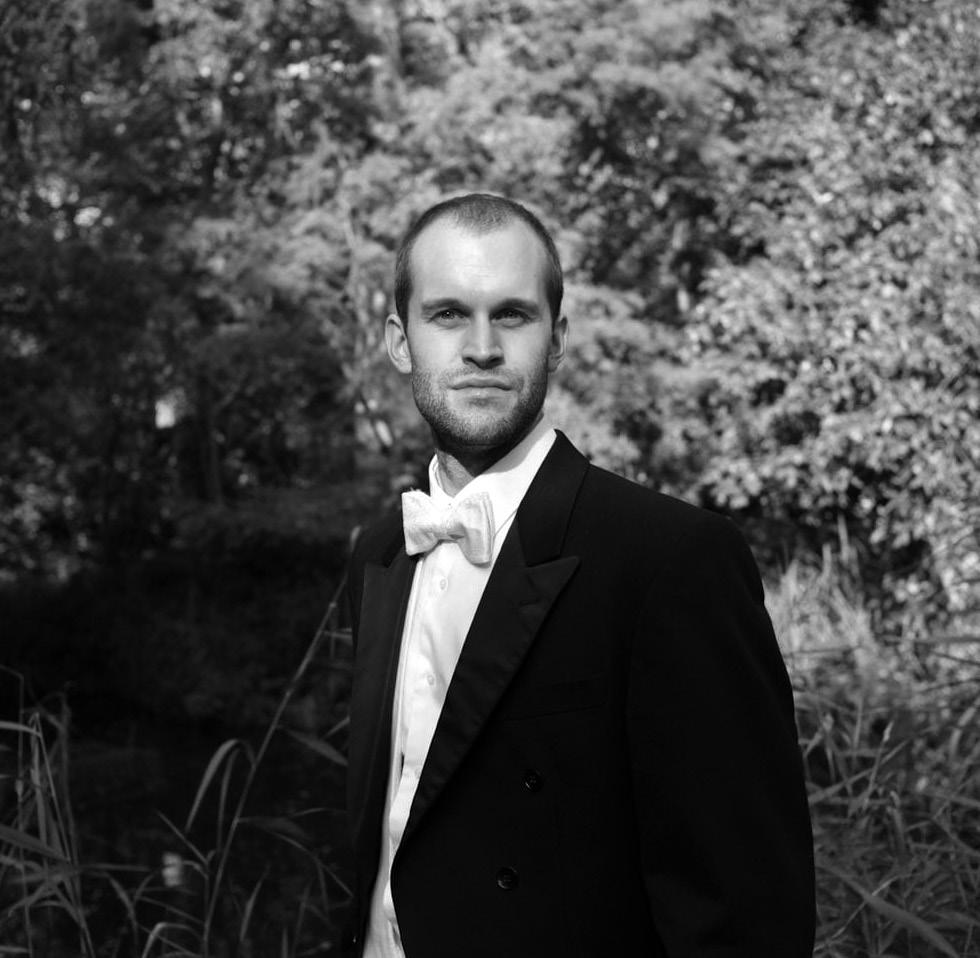
On the operatic stage he has sung Figaro and Count Almaviva Le Nozze di Figaro, Don Giovanni, Escamillo Carmen, Schaunard La Boheme and the Pirate King The Pirates of Penzance at houses including The Royal Opera House, English National Opera, Glyndebourne, Garsington, the Grange Festival and Opera Holland Park.
Highlights on the concert platform in the 2021/22 season include Tippet’s Midsummer Marriage with Edward Gardner/London Philharmonic Orchestra, Haydn’s Creation with Laurence Cummings/Academy of Ancient Music, Purcell’s Dido and Aeneas with the Helsinki Baroque Orchestra, a US tour of Bach’s Christmas Oratorio with Richard Egarr/Philharmonia Baroque Orchestra, a European tour of Handel’s Messiah with Paul McCreesh/Basel Chamber Orchestra, Handel’s Solomon with the Netherlands Radio Philharmonic Orchestra, and Bach’s St John Passion with Trevor Pinnock/The Royal Concertgebouw Orchestra in Amsterdam.
In recital, he has collaborated with pianists including Graham Johnson, Iain Burnside, Julius Drake, Joseph Middleton, Anna Tilbrook, James Baillieu, Simon Lepper, Gary Matthewman, and Sholto Kynoch.
Ashley has a fast-growing discography including the BBC Music Magazine 2020 Recording of the Year, Purcell’s King Arthur with Gabrieli, and Wonderful Town with the LSO and Sir Simon Rattle. Most recently he released his debut solo disc for Chandos, Musical Zoo.
When not singing, Ashley enjoys the Times Crossword.
Gregory Batsleer is acknowledged as one of the leading choral conductors of his generation, winning widespread recognition for his creativity and vision. Since taking on the role of SCO Chorus Director in 2009 he has led the development of the Chorus, overseeing vocal coaching, the SCO Young Singers’ Programme and the emergence of regular a capella concerts. As well as preparing the Chorus for regular performances with the Orchestra, he has directed their recent successful appearances at the Edinburgh International Jazz, East Neuk, Glasgow Cathedral and St Andrews Voices Festivals, at Greyfriars Kirk, and on the SCO’s Summer Tour earlier this year.
In 2021 Gregory took up the position of Festival Director for the London Handel Festival. He leads the programming and development of the Festival, fulfilling its mission to bring Handel’s music to the widest possible audiences. Since 2017 he has been Artistic Director of Huddersfield Choral Society and was Chorus Director with the Royal Scottish National Orchestra from 2015 - 2021.
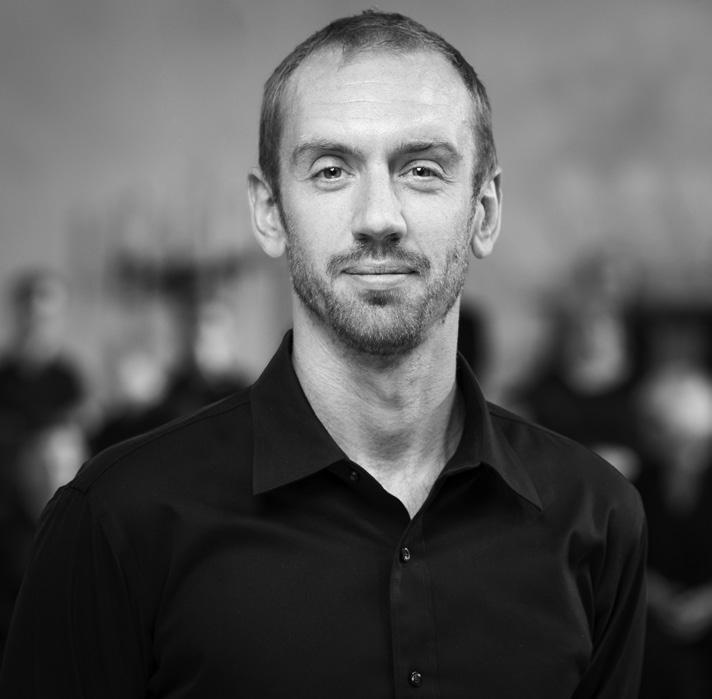
As Guest Conductor Gregory has worked with many of the UK’s leading orchestras and ensembles. Recent highlights include performances with the Royal Northern Sinfonia, RSNO, National Youth Choir of Great Britain, Orchestra of Opera North, Manchester Camerata, Royal Liverpool Philharmonic Orchestra, English Chamber Orchestra and London Symphony Chorus, as well as SCO.
From 2012 to 2017, he was Artistic Director of the National Portrait Gallery’s Choir in Residence programme, the first ever in-house music programme of any gallery or museum in the world. He has curated and devised performances for the Southbank Centre, Wilderness Festival and Latitude and collaborated with leading cultural figures across a variety of different art forms. Gregory is the co-founder and conductor of Festival Voices, a versatile ensemble dedicated to cross-art collaboration.
As a non-executive director, Gregory sits on the boards of Manchester Camerata and Charades Theatre Company. His outstanding work as a choral director was recognised with the 2015 Arts Foundation’s first-ever Fellowship in Choral Conducting.
Gregory’s Chair is kindly supported by Anne McFarlane
The Scottish Chamber Orchestra Chorus, under the direction of Gregory Batsleer since 2009, has built a reputation as one of Scotland’s most vibrant and versatile choirs. Widely regarded as one of the finest orchestral choruses in the UK, it celebrated its 30th anniversary in 2021.
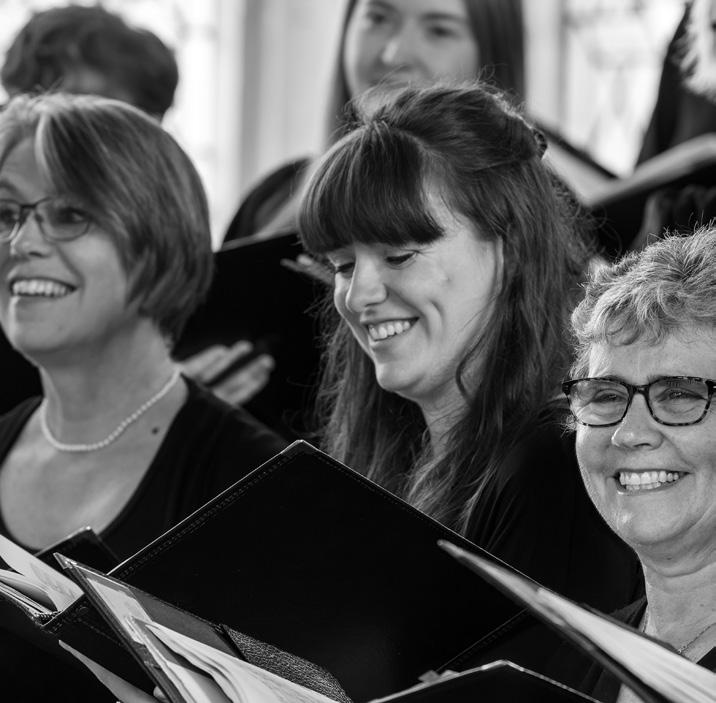
Members enjoy the unique opportunity to perform with one of the world’s leading chamber orchestras, working with international conductors including Maxim Emelyanychev, Harry Christophers, Richard Egarr, Andrew Manze, John Storgårds and Sir James MacMillan.
The Chorus appears regularly with the Orchestra in Scotland’s major cities. Recent concerts have covered a wide range of music including MacMillan Seven Last Words from the Cross, Stravinsky Mass, Handel Messiah and Theodora, Haydn Seasons, Beethoven ‘Choral’ Symphony and Missa Solemnis, Brahms Ein deutsches Requiem, a rare performance of Vaughan Williams Flos Campi and the premiere of The Years by Anna Clyne, SCO Associate Composer 2019-2022.
The SCO Chorus also appears on its own in a cappella repertoire, both digital and live, including an acclaimed performance of Tallis’ Spem in Alium at Greyfriars Kirk and concerts as part of the SCO’s 2022 Summer Tour including the premiere of Anna Clyne’s The Heart of Night. Its annual Christmas concerts have quickly established themselves as a Season highlight.
Other notable out-of-Season appearances have included a critically-acclaimed debut at the BBC Proms in Handel’s Jephtha in 2019 and a dramatised performance of Parry’s Songs of Farewell in 2017, devised by stage director Jack Furness and Chorus Director Gregory Batsleer.
Our Young Singers' Programme was established in 2015 to nurture and develop aspiring young singers. It is designed for young people with a high level of choral experience and ambitions to further their singing with a world-class ensemble.
Further information at sco.org.uk
The SCO Chorus Young Singers' Programme is kindly supported by the Baird Educational Trust.
Kirstin Anderson
Gregory Batsleer
Chorus Director
Stuart Hope Associate Chorusmaster
Alan Beck Voice Coach
Emma Morwood Voice Coach
Susan White Chorus Manager
* Young Singers' Programme
Emily Borrill Joanna Burns Nancy Burns Morven Chisholm Mairi Day Emily Gifford Nicola Henderson Lisa Johnston Lesley Mair Katie McGlew Jenny Nex Annike Petin Alison Robson Alison Williams Emily Zehetmayr*
ALTO Shona Banks Dinah Bourne Sarah Campbell Judith Colman Liberty Emeny Anne Gallacher Jennie Gardner Claire Goodenough Holly Gowen* Anne Grindley Lorna Htet-Khin
Melissa Humphreys Rachel Kemp Elaine McAdam Hilde McKenna
Jan Raitt Linda Ruxton Anna Yule
Matthew Andrews Andrew Carvel
David Ferrier
Colin French Fraser Macdonald* Keith Main David Nelson Matt Norriss Michael Scanlon
Paul Vaughan
BASS Mathew Brown
Gavin Easton David Ireland Jamie Lewis* Donald MacLeod Sandy Matheson Richard Murphy Kenneth Murray Douglas Nicholson David Paterson Jonathan Pryce Felix Reynish* Fraser Riddell Peter Silver Roderick Wylie
Information correct at the time of going to print
The internationally celebrated Scottish Chamber Orchestra is one of Scotland’s National Performing Companies.
Formed in 1974 and core funded by the Scottish Government, the SCO aims to provide as many opportunities as possible for people to hear great music by touring the length and breadth of Scotland, appearing regularly at major national and international festivals and by touring internationally as proud ambassadors for Scottish cultural excellence.
Making a significant contribution to Scottish life beyond the concert platform, the Orchestra works in schools, universities, colleges, hospitals, care homes, places of work and community centres through its extensive Creative Learning programme. The SCO is also proud to engage with online audiences across the globe via its innovative Digital Season.
An exciting new chapter for the SCO began in September 2019 with the arrival of dynamic young conductor Maxim Emelyanychev as the Orchestra’s Principal Conductor.
The SCO and Emelyanychev released their first album together (Linn Records) in November 2019 to widespread critical acclaim. The repertoire - Schubert’s Symphony No. 9 in C major ‘The Great’ –is the first symphony Emelyanychev performed with the Orchestra in March 2018.
The SCO also has long-standing associations with many eminent guest conductors including Conductor Emeritus Joseph Swensen, François Leleux, Pekka Kuusisto, Richard Egarr, Andrew Manze and John Storgårds.
The Orchestra enjoys close relationships with many leading composers and has commissioned almost 200 new works, including pieces by the late Sir Peter Maxwell Davies, Sir James MacMillan, Sally Beamish, Martin Suckling, Einojuhani Rautavaara, Karin Rehnqvist, Mark-Anthony Turnage, Nico Muhly, Anna Clyne and Associate Composer Jay Capperauld.
For full biography please visit sco.org.uk



Generations of our clients have trusted us to help build and preserve their wealth.

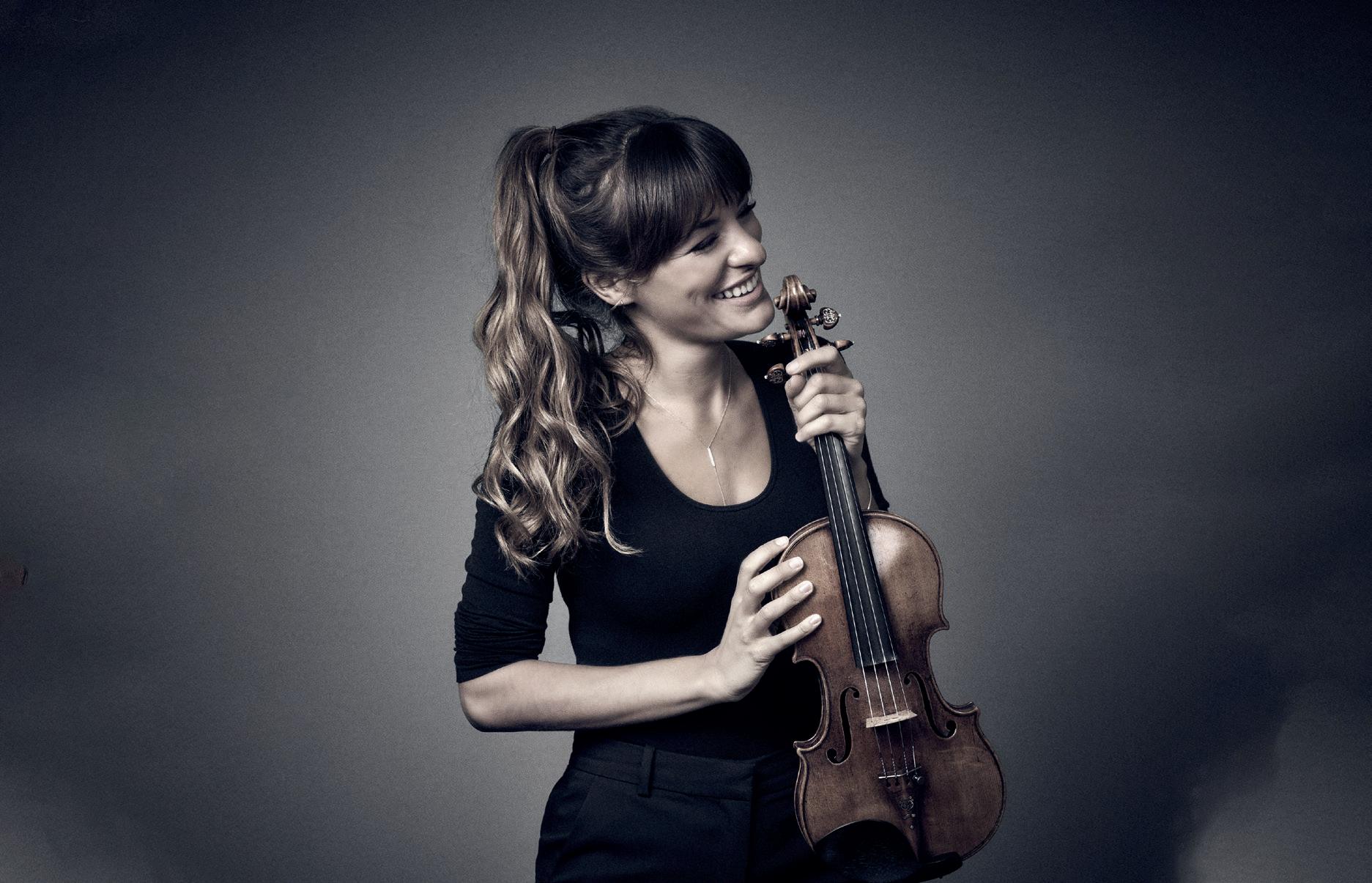

For over 250 years, they have relied on our expert experience to help make sense of a changing world. During that time we’ve earned an enviable reputation for a truly personal approach to managing wealth.




For those with over £250,000 to invest we o er a dedicated investment manager, with a cost structure and level of service, that generates exceptional client loyalty.

Find out more about investing with us today: Murray Clark at our Edinburgh o ce on 0131 221 8500, Gordon Ferguson at our Glasgow o ce on 0141 222 4000 or visit www.quiltercheviot.com

Investors should remember that the value of investments, and the income from them, can go down as well as up and that past performance is no guarantee of future returns. You may not recover what you invest. Quilter Cheviot and Quilter Cheviot Investment Management are trading names of Quilter Cheviot Limited. Quilter Cheviot Limited is registered in England with number 01923571, registered o ce at Senator House, 85 Queen Victoria Street, London, EC4V 4AB. Quilter Cheviot Limited is a member of the London Stock Exchange and authorised and regulated by the UK Financial Conduct Authority.
